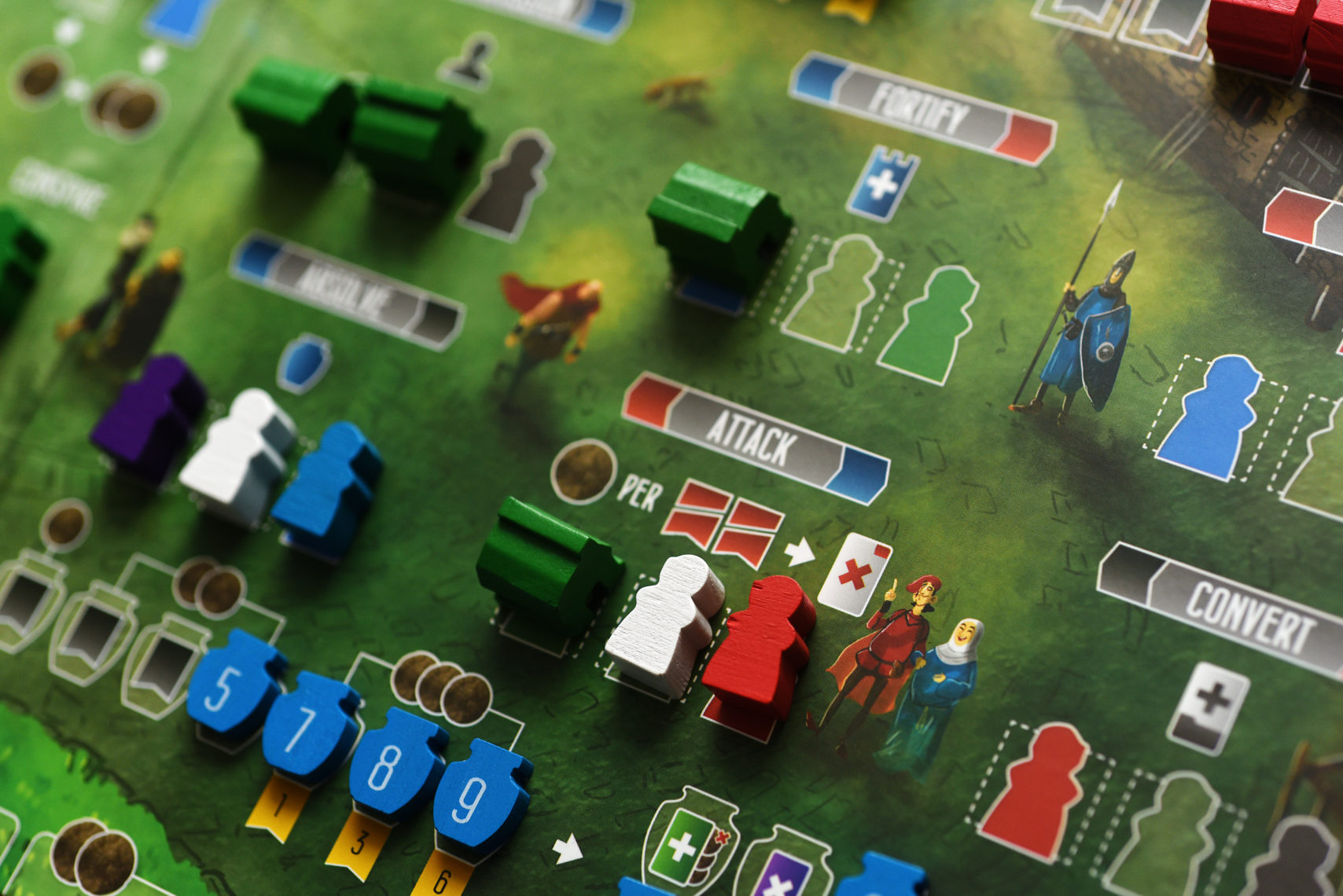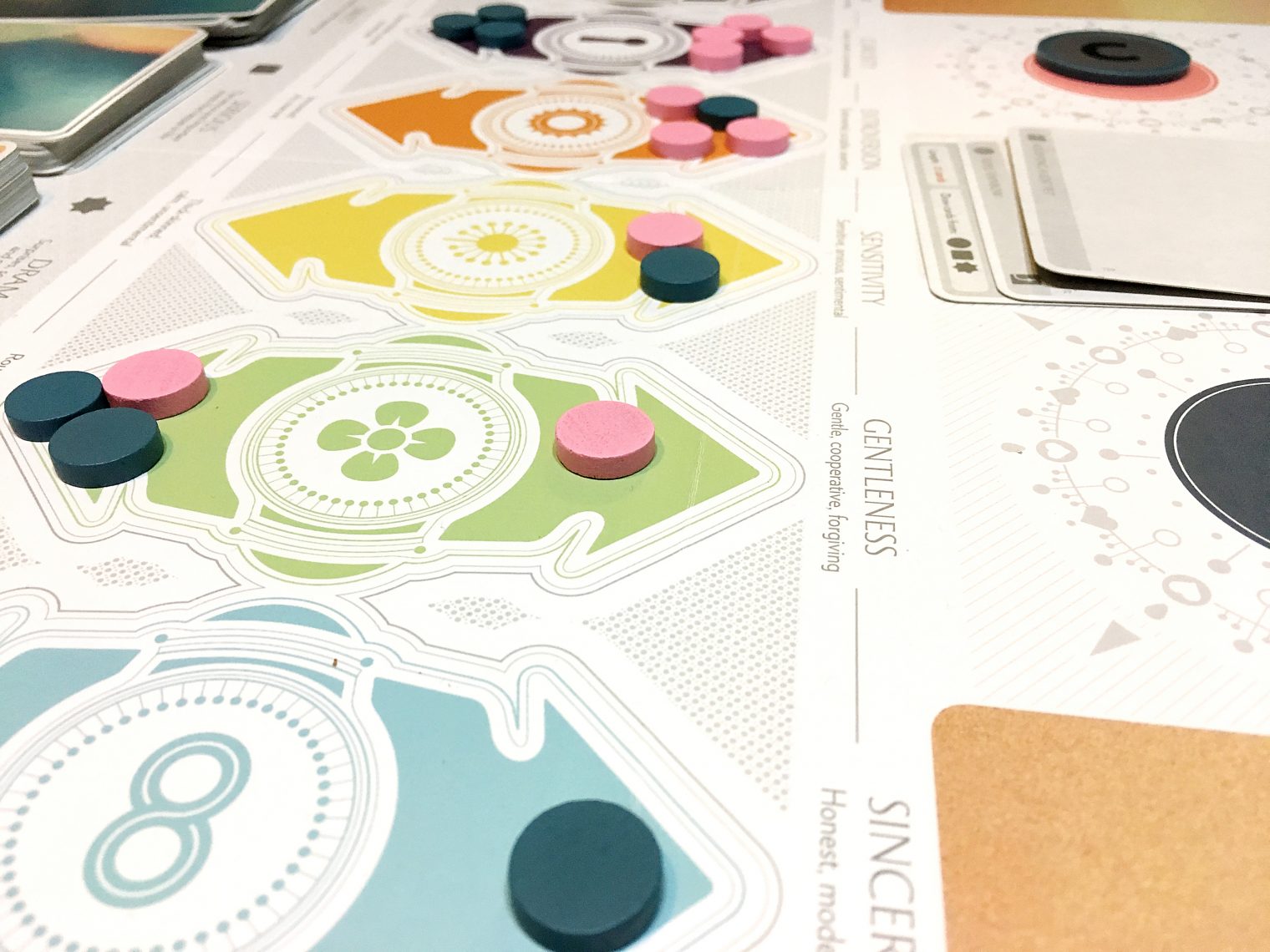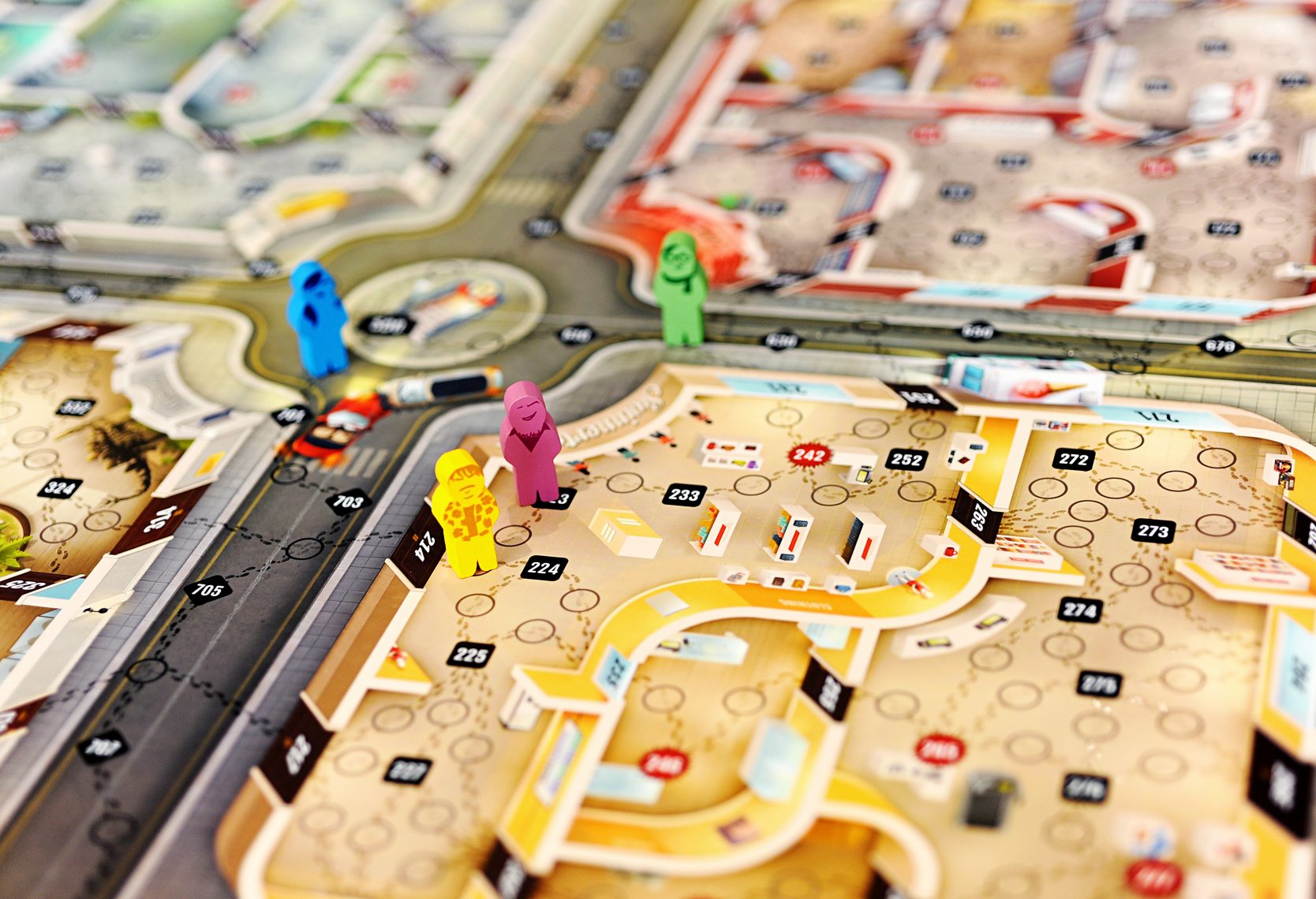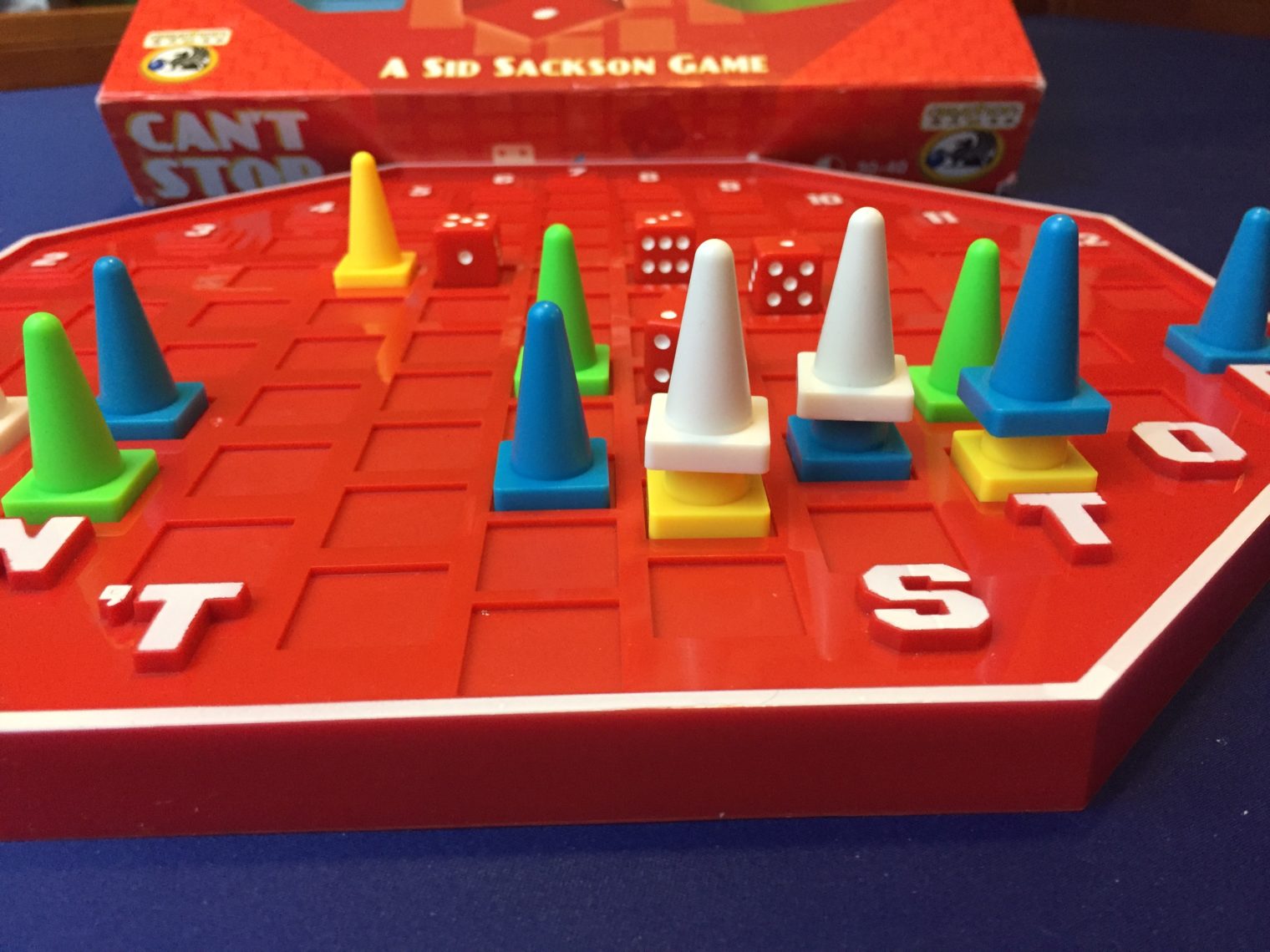A couple of years ago I experienced exquisite agony trying to pair-rank my collection. Trying to decide which game was “better” or “more fun” led to all sorts of interesting questions, which have been stewing in my mind ever since.
So here’s a stupid question: why are games fun?
I mean, they are fun, right? Otherwise, why would we bother? Playing tabletop games gives us pleasure–or I think we can all agree it should. From their earliest beginnings, games have provided diversion and leisure, escape and fulfillment. Each of those words–”diversion”, “leisure”, etc.–can be used as a synonym for “fun”.
But the more I think about it, the more I’m beginning to think that games activate different “pleasure centres” in our brains, depending on the type of game as well as our individual personalities. And that’s why it’s so difficult to objectively rate games–or decide that one game is “better” or “more fun” than another.
I decided to brainstorm as many reasons as possibly why someone would play a game “for fun” and see if there were any patterns or groupings. In the end, the best I could do was split them all into two categories:
Let’s look at each category separately.
SOCIAL FULFILMENT
There are things that are fun in multiplayer mode that just can’t happen when playing solo.

2. Not only is it fun to win and to struggle for that win, it is also fun to stop other players from winning, either by hindering them directly (“take that”), or by things like traitor mechanics and negotiation/backstabbing that require guile and deceit.
3. But adversarial qualities are not the only possible social fulfilments. There’s also just the pleasure of hanging out with friends and belonging to a group. Some games have mechanics in place to facilitate this kind of fun (ie, “party games”), but others provide opportunity to socialize simply by being familiar, allowing players to chit-chat as they play. The latter kind of game isn’t necessarily light–contract bridge for example is hardly simple–but because everyone knows the rules the cognitive load is lower, freeing up brainpower and space to socialize. In some groups, anyway.
4. Related to this sense of belonging is the fulfilment we get from being part of a team that co-operates to overcome a goal (Pandemic) or beat an opposing team (Codenames).

INTERNAL FULFILMENT
Everything else I originally had in this category I ended up moving to the next one.
SOCIAL AND PERSONAL FULFILMENT
The harder I looked the more things I lumped into this last category. Most things that we enjoy on our own we can also enjoy (to greater or lesser extent) with others. They meet the kind of personal and social goals we tend to set for ourselves, at least in today’s Western society.
6. The one that to me is the most pertinent to tabletop games is the joy we get from achieving a goal–either something inherently in a game or something we bring into a game (like beating our previous best score). We have fun overcoming obstacles to reach this goal, whether on our own or working as a team.
7. In many games achieving this goal involves some kind of optimization or puzzle-solving–either explicitly in things like Escape Room games or implicitly via engine-building as in New Frontiers.

8. Speaking of which, there’s the element of escape that games provide for us, taking us out of ourselves and our current set of real-life problems. Abstract games embed us in austere many-dimensional decision-trees; roleplaying games see us literally jumping into someone (or something) else’s skin. As in all art forms there is also the potential for catharsis in playing a tabletop game, a release of suppressed emotions. Fog of Love can trigger intimate vulnerability between the real-life partners playing the game. And the more we can identify with the role we assume in a game whether it be medieval trader, elven cleric, or President of the US, the more immersed we can become and the more fulfilling and cathartic our play experience can be. (This is just one more reason why representation matters.)

9. We get pleasure from looking at and handling the physical components of a game. Even people like me, who claim to care more about gameplay than surface bling, will admit that games with bad aesthetic and graphic design or which make us struggle against the game unnecessarily, are definitely not fun. (I’m looking at you, Legendary: Firefly…)
10. One pleasure I alluded to above is the comfort and relaxation we get from games we are familiar with. Their predictability gives us an illusion of control over our surroundings which is definitely not true IRL (and therefore is also tied to escape). Included here would also be the nostalgia factor of playing games from our youth–even if they’ve been retooled like Stop Thief!

11. Since humans are inherently story-loving, games that provide even a slender thread of narrative also fulfill us–and sometimes when the game doesn’t provide it, we impose our own.
12. Humour in games is definitely a matter of taste, but there’s no denying that games which make us laugh are fun. Sometimes the humour emerges naturally from gameplay; other times it is something specifically in the game itself.
13. Next we have games that provide the somewhat masochistic pleasure of anticipation, suspense, and risk-taking–either through luck mechanics (Can’t Stop), bluffing and counter-bluffing (Android: Netrunner), or via narrative. There’s nothing like being told by the game to up one of the boxes in one of the Pandemic Legacy games–what fresh hell is going to visit us now?

14. Finally, a couple of meta-pleasures that have less to do with gameplay than just being in the hobby. The first is collecting itself–let’s face it, it transcends actually playing the games.
15. The second, closely related, is the endorphin rush we get from opening a new game, punching out the pieces, learning a new set of rules and exploring the play-space the designer has put together for us. This is what drives The Cult of The New, I believe.
So there you have it: by my count there are fifteen different possible sources of pleasure that tabletop games can give us. Some are some intentionally seeded by the designer, some are brought to the table by the player(s), others are a mixture.
But what about theme and mechanics–the two basic categories we all tend to use when talking about games? Why aren’t they included?
The answer is: theme and mechanics are not the basic building blocks. They are “molecules” composed of the atomic “elements” in this list.
Go back and look over the list again to see how many different kinds of pleasure could be produced by game theme or mechanic. I’ll wait.
How many stem from or are connected to theme? All except #5, 10, 14, and 15 I would argue. How many to mechanic? #1, 2, 6-8, and 13. I think.
Which explains why games that are mainly mechanics with pasted-on-themes tend to be thought of as dry and not much fun–except for people who really value those kinds of experiences!
Modern Tabletop germinated (or “germanated”) in post-WW2 Germany, where choice of theme was severely restricted due to denazification laws. Games about war were directly outlawed; all other games had their competitive adversarial elements nerfed in favour of collective ones. The result was a breeding ground for games centred on abstract mechanics instead of strong theme. Obviously there were exceptions–Barbarossa, perhaps Scotland Yard–but even then I wouldn’t call those themes immersive.

Furthermore, the designers who arose in that first wave thought of game design primarily in terms of mechanic–Knizia is the epitome here. Even Teuber, who started out wanting to make a game “about” the Vikings, ended up with Catan, which was as generic a theme as you can get. Sure Ticket to Ride is “about” trains (and the UK/Pennsylvania expansion pushes it about as far as you can go into traditional 18xx territory, which isn’t far), but Alan R. Moon had already published at least four other designs about route-building using trains in various other eras as well as ships.
This is why there is still a cohort of players out there who couldn’t care less about theme–they just want “the game” to be good. They’ve been weaned on a diet of mechanic-heavy games which supply them with all the pleasure and fulfilment they need. They don’t yet understand that games can (and arguably should) satisfy different varieties of fulfilment.
On the other hand, designers who understand this kind of “tabletop atomic theory” and can tap into many different kinds of “pleasure centres” are bound to find wider audiences.
Anyway, this is as far as I’ve got to in my musings. I’ve rattled on long enough. Cheers.
Excellent overview! First time I’ve seen anyone try to actually nail a list of these as atomic building blocks – and its very useful to think about. It’s making me consider my own theoretical approach…
Why thank you sir! That was the idea 🙂
[…] I outlined in my discussion two years ago, games fulfill at least fifteen distinct intrapersonal and interpersonal needs–of which the need […]
[…] validated (and smug) that ChatGPT’s answer basically mirrors and outlines the ideas I raised in my article about why boardgames are fun. So […]